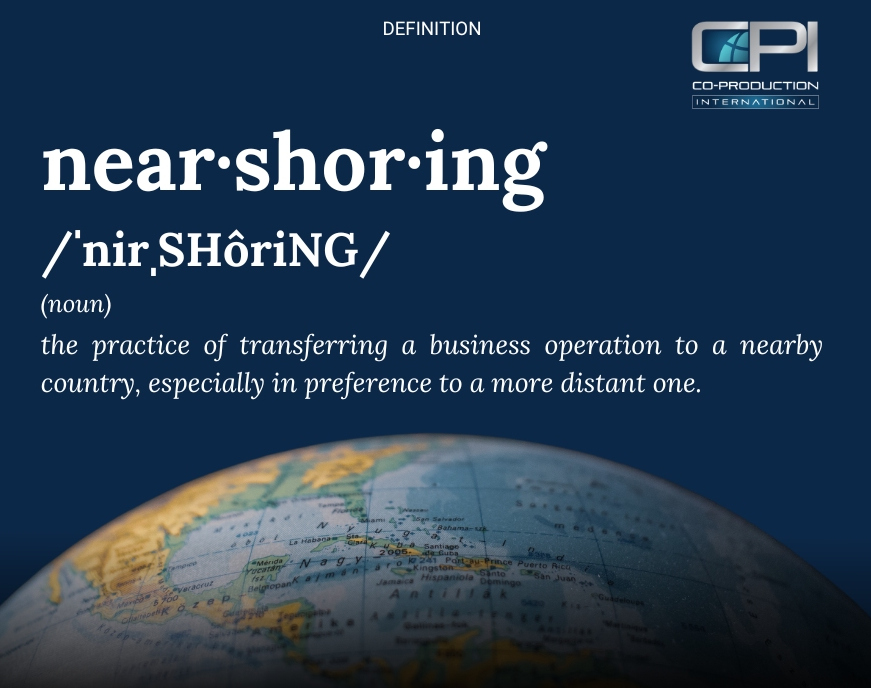In a remarkable twist of global trade fortunes, Mexico has emerged as the United States' foremost trade partner, surpassing China in exports to the US. This pivotal transition, documented by the United States Department of Commerce, signifies a monumental shift in international trade dynamics, reshaping supply chains and trade relationships worldwide.

A Shift in Global Trade Dynamics
In a significant shift that has reshaped the dynamics of international trade, Mexico Exports to US have now eclipsed those from China, marking a momentous change in the global supply chain and trade relationships. This transition, documented by the United States Department of Commerce, highlights a pivotal moment, reflecting the diversification of import sources and a strategic recalibration of US trade policy. It took 17 years for Mexico to significantly impact the US import market, gradually diminishing China's once dominant position as a main source of imports.
The Catalysts Behind the Change
The journey towards this significant shift was shaped by multiple pivotal elements, notably the impact of US tariffs on China during the Trump administration, playing a central role. These stringent tariffs targeted a broad spectrum of Chinese goods, serving as a critical catalyst in altering the balance of trade. This, coupled with the seismic disruptions to global supply chains triggered by the COVID-19 pandemic, has significantly impacted China's export capabilities and reliability as the primary supplier to the US market.
Furthermore, this realignment in trade between Mexico, the US, and China also reflects broader geopolitical shifts, notably influenced by the war in Ukraine. The conflict has further strained global supply chains, highlighting the vulnerabilities of heavy reliance on distant manufacturing hubs.
In addition, the evolution of trade agreements within North America, such as the United States-Mexico-Canada Agreement (USMCA), has been instrumental in facilitating this shift, strengthening trade relations and integration within the region. These agreements, set against the backdrop of an ever-evolving global economy, underscore the strategic importance of North America in global trade dynamics, emphasizing cooperation and economic synergy among its members to enhance competitiveness and stability in trade and investment.

Embracing Friendshoring and Nearshoring
As part of its evolving US trade policy, the United States has increasingly embraced the concept of "friendshoring", aiming to strengthen trade relations with allies and neighboring countries like Mexico.
"Friendshoring'' and the concept of "Nearshoring" refer to the practice of expanding production and setting up manufacturing facilities in countries that are geographically closer to the United States, such as Mexico, as part of a broader strategy to streamline the import and export process. This approach is aimed at reducing the US's dependency on foreign countries for manufacturing and production, while also strengthening economic ties with neighboring nations and optimizing the efficiency of import and export activities.
By nearshoring, companies can benefit from shorter supply chains, reduced transportation costs when importing raw materials or exporting finishing goods, and improved communication and collaboration with their overseas partners. This approach also helps to mitigate risks associated with political instability, natural disasters, and other disruptions that can impact global supply chains.
Overall, nearshoring is seen as a way to increase efficiency, flexibility, and resilience in the face of an increasingly interconnected and volatile global economy. This strategic pivot reflects a broader intent to diversify import sources and enhance the resilience of supply chains against geopolitical and health-related uncertainties.
Economic Impacts and Industry Growth
The implications of Mexico's ascendancy in the US import market extend far beyond mere trade statistics. They signify a profound transformation in economic relationships, with substantial effects on Mexico industries.
What does Mexico Export to the US?
Mexico's export portfolio to the United States showcases a remarkable diversity across critical industries, highlighting the country's significant role in international trade and economic interconnectivity. Among the leading sectors are automotive and auto parts, electronics, aerospace components, and medical devices, each contributing to the robust trade relationship between Mexico and the US. In the medical device sector, Mexico distinguishes itself on the global stage, particularly in Baja California, which is renowned for having the largest concentration of medical device manufacturing in North America. This region hosts over 70 manufacturers, including industry powerhouses such as Medtronic, Philips, and GE Healthcare, underscoring its critical importance to the healthcare sector.
The automotive industry is another key area of Mexico's exports, bolstered by recent developments such as Tesla's announcement to set up a plant in Santa Catarina, Nuevo León. This move by Tesla not only reinforces Mexico's position as a premier destination for automobile manufacturing but also signals confidence in Mexico's skilled workforce and advanced manufacturing capabilities. Major global automakers like General Motors, Ford, and Volkswagen have long operated production facilities in Mexico, contributing significantly to the country's export economy.
In electronics, Mexico has attracted substantial investments from leading companies, including Sony, Samsung, and Intel, which have established significant manufacturing plants in the country. The aerospace industry further exemplifies Mexico's industrial prowess, with regions such as Baja California, Sonora, and Querétaro becoming crucial hubs for aerospace manufacturing. Companies like Bombardier, Honeywell, and Airbus have facilities in Mexico, contributing to its growing reputation in aerospace component manufacturing and exports.
These sectors, along with the recent investment by Tesla, collectively underscore Mexico's expansive industrial capabilities and strategic importance to the global economy. By hosting manufacturing operations for some of the world's top companies across various industries, Mexico continues to strengthen its economic ties with the US, reinforcing its position as an essential partner in fostering global trade and industry innovation.

Adapting to New Trade Realities
The evolving landscape of global trade underscores the crucial role of adaptability in international trade for goods and services. As businesses confront tariffs and supply chain disruptions, strategies like co-production and the utilization of industrial shelter services in Mexico offer effective avenues for adaptation. These methods enable collaborative manufacturing and service provision between the US and Mexico, leveraging each nation's strengths to foster economic growth and diversify trade relationships.
Central to this adaptive approach is the IMMEX program, which grants companies preferential treatments such as duty-free temporary importation of goods, reducing operational costs and enhancing competitiveness for both goods and services. Combined with other measures like tariff reductions and streamlined customs procedures, IMMEX enhances the attractiveness of Mexico as a manufacturing and service hub, contributing to the efficiency of global supply chains.
These initiatives demonstrate the importance of flexibility and cooperation in navigating the complexities of international commerce for goods and services, ensuring businesses can thrive amid the changing dynamics of global trade.
The transformation of Mexico from a secondary supplier to the primary exporter of goods and services to the US marks a significant shift in the dynamics of global supply chains and reflects a strategic recalibration of trade policies. As the US and Mexico fortify their economic connections through initiatives such as friendshoring, nearshoring, and shelter services in Mexico, they not only bolster their resilience but also lay the groundwork for future international trade relations. This new era of collaboration and strategic partnership serves as a model for the global economy, demonstrating the power of adaptability and mutual support.
Seize the Future of Trade: Partner with Us for Cross-Border Success
If you're looking to navigate this evolving landscape and capitalize on the opportunities it presents, We invite you to contact us, our expertise in facilitating cross-border trade and investment can help you harness the benefits of these changing dynamics. Let's work together to shape a prosperous future in this new era of trade relations.







.png)







